
 Comrade Nguyen Khoa Diem - Photo: PV
Comrade Nguyen Khoa Diem - Photo: PV
Looking back at glorious historical journeys
Since the historic Autumn of 1945 until now, the Vietnamese Cultural sector has always accompanied the nation, becoming one of the steadfast pillars contributing to building the national character and appearance.
Looking back, 1945 marked the beginning of an era of national independence and freedom. The victory of the August Revolution, followed by the Declaration of Independence on September 2, affirmed the indomitable will of our people in overthrowing colonialism, overthrowing the feudal regime, and building a new Vietnam - the Democratic Republic of Vietnam. In that journey, culture was not only the spiritual foundation, but also the force that united the people, nurtured aspirations, and guided the revolutionary cause.
During that time, along with the nation's important political mission, the team of cultural workers also shouldered an equally important mission: to change an old, backward culture into a new one, to meet the demands of the times and make practical contributions to the cause of national construction and development.
It can be said that in the 1940s of the 20th century, Vietnamese society not only faced a political crisis, posing an urgent need to carry out the cause of national liberation, but also fell into a deep cultural and spiritual crisis - a product of the long-lasting semi-feudal colonial regime. It was in this context that our Party promptly issued the Outline on Vietnamese Culture in 1943, orienting the building of a new culture with three major characteristics: National - Scientific and Mass, creating an ideological foundation for culture to become a force accompanying the nation in the revolution of liberation and national construction.
Obviously, it was a fierce struggle on the cultural front, aiming to change awareness, raise the spirit and arouse the spiritual strength of the Vietnamese people, preparing for the "earth-shattering" revolution. Therefore, from the very beginning, the task of culture was closely linked, inseparable from the task of national liberation - the great political task of the entire nation and people.
That is a great advantage for those working in cultural work. Therefore, immediately after the victory of the August Revolution, a series of new forms of cultural activities were quickly born, typically the Cultural Week, the Popular Education Movement, or efforts to build a civilized and healthy lifestyle... Then, in 1946, the first National Cultural Conference was held with the participation of President Ho Chi Minh . Here, he left behind the immortal saying: "Culture must light the way for the nation to go" - an orientation with consistent guiding ideology.
The way our Party and the cultural sector have raised the issue from the beginning has clearly affirmed: culture must take the lead, become a spiritual driving force, and effectively serve the cause of resistance and nation building. Looking back over 80 years since that historical moment, we can see that culture has always been closely linked to the fate of the nation, making a great contribution to the common cause of the people of the whole country. The most important thing, which is also the consistent lesson, is that all cultural activities always blend together and go hand in hand with the political tasks of the nation - from the struggle for independence, the resistance against French colonialism, to the resistance against neo-colonialism in the South, and then towards national reunification.
It can be affirmed that, in the heroic years of the nation, culture has always been present as a force accompanying the resistance. Culture is present on the front line with the army, present in the political struggles in the cities, in the image of resilient mothers and in the confident singing of the youth. Meaningful slogans and movements such as “Singing over the sound of bombs”, “Sleepless nights”, “Singing for my people”… have become the flame that lights up the spirit, fosters the will, and awakens the inner strength of the Vietnamese people. These are vivid proofs of the great and lasting contributions of the cultural sector throughout the struggle for independence and freedom for the nation.
Many years after the end of the war, Robert McNamara - former US Secretary of Defense - in his memoirs admitted the bitter defeat of the US in the Vietnam battlefield. That defeat was due to their lack of understanding of history, will and especially their lack of awareness of the cultural and spiritual strength of the Vietnamese people. That was the fundamental reason why a powerful army, fully equipped with modern weapons, could not cope in the fight with the Vietnamese people.
From that historical perspective, it can be clearly seen that culture is not only a spiritual foundation but also an internal strength, a wake-up call, a driving force that urges the indomitable will of the nation. Without the companionship of culture, without the voice of encouragement and support, in the confrontation with half a million American troops, our nation would hardly have been able to stand firm, much less achieve a resounding victory in the 20th century.
Second, it can be affirmed that from the very beginning, Vietnamese culture has been placed in a close relationship with national identity - a long-standing tradition of the Vietnamese people. Culture, in the concept of our nation, is not only the common values of humanity, but is also closely linked to a specific land, to the history of building and defending the country, to wise kings and to our own people.
Therefore, the concept of quintessence and culture is always closely linked to the identity of the homeland and country. Therefore, the slogan "Building an advanced culture, imbued with national identity" did not just appear today, but has existed since the early days of the revolution, originating from the long-standing tradition of the Vietnamese people. Until now, that slogan still retains its value. It both meets the requirements of integration, reaching the advanced standards of the times, and emphasizes the responsibility to preserve national identity - considering it an important factor creating the cultural strength of the Vietnamese people.
It can be affirmed that in recent years, we have achieved important achievements in gradually building and perfecting the system of viewpoints, guidelines and policies for the new culture; at the same time, forming a team of capable cadres to be the core for the cause of developing the country's culture. This is a great success in the 80-year leadership of the Party and the Culture sector. Because, without the fundamental internal strength of policies, laws and people, there will certainly be no "backbone" to form a new culture, nor can we motivate and lead the people to develop culture in the right direction, to build a healthy and progressive spiritual life.
During this period, a prominent highlight of the cultural sector was the timely identification and response to the new requirement: bringing culture deeply into the lives of the people through socialization and the cultural market. Thanks to that, cultural activities have become more vibrant, more effective, meeting the needs and serving the people better. Because, in the current conditions, all cultural values can only develop their vitality when they are tested, affirmed through the market and accepted by the masses. Culture cannot be the sole work of a small group of intellectuals or artists, but must become a common cause of the entire people. This is a great lesson, of long-term significance in the process of building and developing Vietnamese culture.
In addition, we are increasingly expanding international exchanges, absorbing the quintessence and cultural experiences of humanity to enrich the spiritual life of the people. Cultural progress in recent years has shown Vietnam's strong integration ability in accessing increasingly wider, more diverse and richer world cultural trends; thereby, Vietnamese people are increasingly confident in connecting and integrating with the cultural community of humanity, while still maintaining their own identity.
However, in addition to the achievements, we also face many difficulties and challenges in the cause of cultural development. First of all, the quality of cultural activities is not really high, professionalism is still limited; at the same time, negative and toxic factors that society does not want are increasingly infiltrating and permeating cultural life, from superstition, foreign-oriented mentality to commercialization trends... These manifestations not only reduce the true value of culture but also pose a potential risk of deviating from the development orientation. Therefore, it is hoped that the cultural sector, after 80 years of formation and growth, will continue to draw valuable lessons from practice, promote existing good experiences, to adapt and develop in new conditions.
The current expectation is that, after completing the task of liberating the nation, regaining independence and unifying the country, our new task is to bring the country to a higher cultural level with a fast, good and solid direction. The key issue is to choose the right path of development, going fast but having to be effective and sustainable. Because, only when reaching a level of civilized culture, the development of the country will be truly profound and sustainable. On the contrary, if we focus on economic benefits, or purely rely on technology, it cannot be considered a solid foundation. The decisive factor for all changes is still people. If people are not fully equipped with the mettle, qualities and cultural capacity, the achieved development will hardly have depth and sustainability.
So that all classes of people can participate and enjoy culture.
The time I worked for the Ministry of Culture and Information, now the Ministry of Culture, Sports and Tourism, was also the time when the whole sector focused on implementing the Resolution of the 5th Central Committee, Session VIII. One of the key solutions at that time was to launch a campaign to educate patriotism, associated with the emulation movement "All people unite to build a cultural life", to arouse the spirit of great solidarity, foster will and create a solid foundation for cultural development in social life.
It can be said that an important milestone in the process of developing our Party's cultural thinking is the Resolution of the 5th Central Conference, Session VIII in 1998 (initially called Resolution 3). This is a historic resolution, laying the foundation for building an advanced Vietnamese culture imbued with national identity. Before that, the awareness of culture in many aspects was still not comprehensive and systematic; it was not until 1998, in the context of the international trend of "re-awareness of culture", that our Party promptly grasped, generalized and set out strategic directions, affirming that culture is the spiritual foundation of society, both the goal and the driving force of development.
When UNESCO initiated a new cultural development program, identifying culture as both the driving force and the goal of development, Vietnam promptly seized this opportunity. Under the close guidance of the Party leadership, we quickly drafted a Project on building a new culture, preparing the theoretical and practical basis for the promulgation of the Central Resolution. All took place in an exciting atmosphere, full of confidence and expectation, spreading from within the Party, within the cultural sector to the whole society.
Looking back on the past, we can see an important achievement that we have elevated culture to a political field, considering it a task to ensure a successful political career, and at the same time a solid foundation for the country's development. In other words, only with culture can a country develop sustainably, which is a completely new perception compared to before. From that perception, those working in cultural work always carry within them the aspiration and excitement: to properly perform the pioneering role, creating healthy cultural spaces, worthy of the country's progress and aspirations.
Therefore, it is necessary to form a large mass movement in cultural construction, associated with the policy of socializing cultural activities so that all classes of people can participate, enjoy and contribute. The Party has promptly proposed a policy to strengthen mechanisms and policies for cultural activities; from there, many art groups and troupes have been supported and encouraged to create new and valuable works to serve the cause of developing the country's culture.
In particular, in localities, the slogan “All people build a cultural life” has spread strongly, developing both in breadth and depth. My deep impression is that in the Catholic region of Hai Hau (Nam Dinh), the movement to build a cultural life is very vibrant and highly voluntary. State policies play a very important guiding role, but the decisive factor is still the people's hearts. People here voluntarily participate, voluntarily attach themselves to the criteria of “cultural villages”, and thanks to that, the movement has developed rapidly. Initially, only a few villages and hamlets built cultural houses; but up to now, this model has been widely and sustainably expanded.
Or the choice of Hoi An to become the first cultural city, initially there were also concerns and worries because the urban environment is much different from the countryside. However, reality has proven that it was a correct decision, because here exists a solid cultural tradition foundation and deep cultural awareness among the people, creating an important fulcrum for sustainable development. This is one of the deep impressions left in me about the fundamental role of tradition and community cultural awareness in the cause of building cultural life.
I always believe that if the State has the right orientations on culture, the people will agree and actively join hands to foster cultural development. However, what needs to be especially avoided is letting culture develop spontaneously. People proactively and voluntarily building a cultural life is a positive factor; but if culture is allowed to drift spontaneously and without direction, it will lead to many consequences. Therefore, it is essential to have adequate policies, guidelines, and laws, coupled with correct incentive policies and a team of capable cultural cadres to guide, in order to create and develop a healthy and sustainable cultural movement.
Currently, the spontaneous situation in the cultural field still exists, many festivals are organized without direction; the construction of communal houses and pagodas in some places is still spontaneous; or the problem of information on social networks still occurs in an uncontrolled manner... These phenomena have a significant impact on cultural life, because culture cannot be a story of "everyone doing it themselves", but the core is to create authentic values, with direction and standards.
Therefore, in the coming time, this issue needs to be raised more clearly and seriously, thereby shaping the right direction for cultural development. Only when this is done, will Vietnamese culture truly become healthy and steady on the path of building an advanced culture with strong national identity.
BICH NGOC summary
Source: Literature and Arts Magazine No. 615, August 2025
Source: http://vanhoanghethuat.vn/van-hoa-suc-manh-gan-ket-long-dan-nuoi-duong-khat-vong-va-soi-duong-cho-su-nghiep-cach-mang.htm



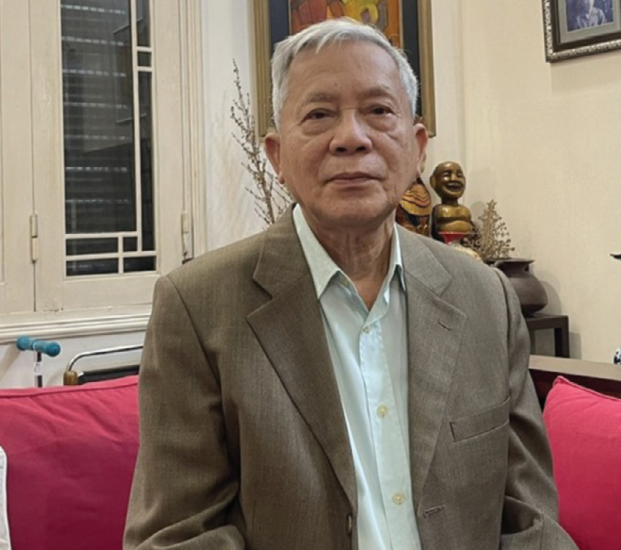
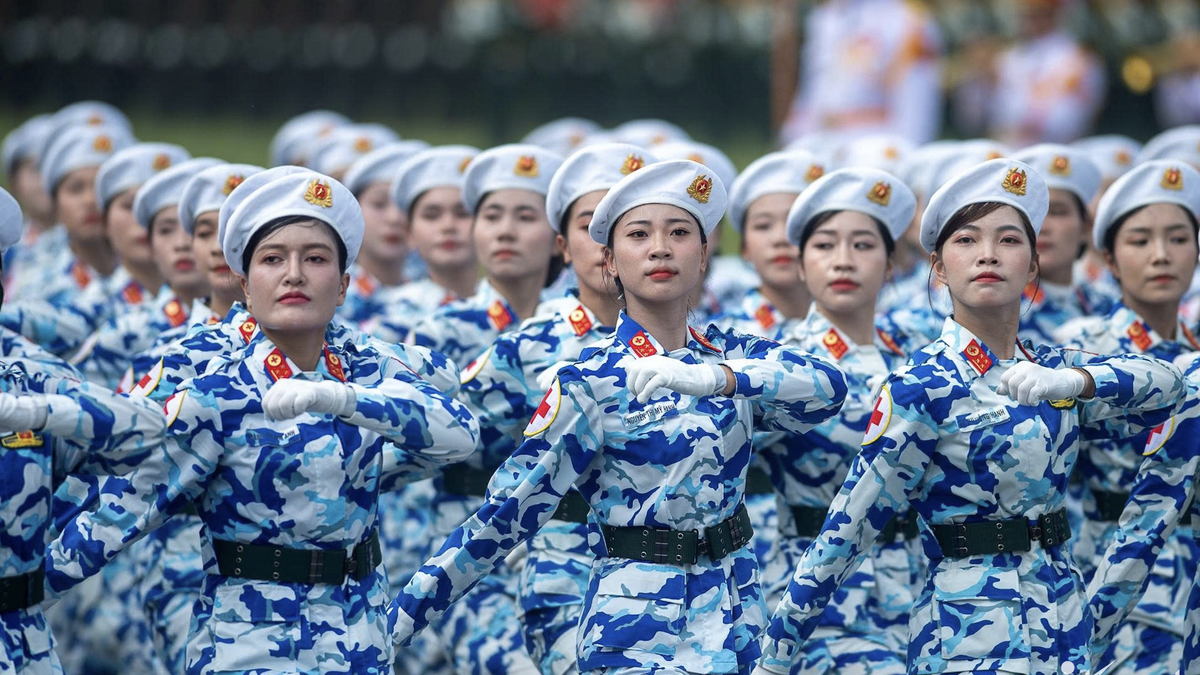
![[Photo] Hanoi: Authorities work hard to overcome the effects of heavy rain](https://vphoto.vietnam.vn/thumb/1200x675/vietnam/resource/IMAGE/2025/8/26/380f98ee36a34e62a9b7894b020112a8)

![[Photo] Multi-colored cultural space at the Exhibition "80 years of the journey of Independence - Freedom - Happiness"](https://vphoto.vietnam.vn/thumb/1200x675/vietnam/resource/IMAGE/2025/8/26/fe69de34803e4ac1bf88ce49813d95d8)

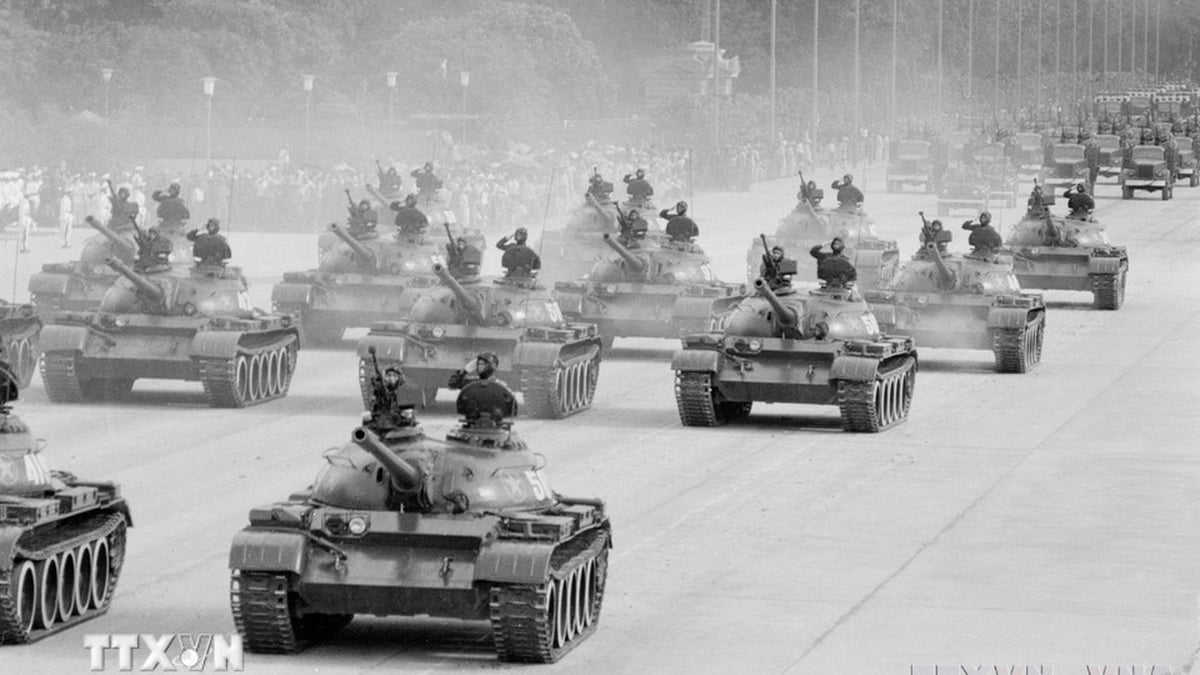
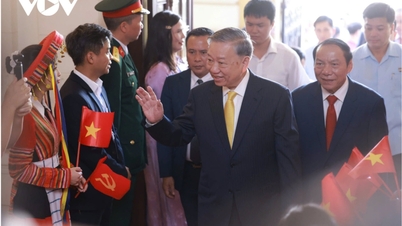

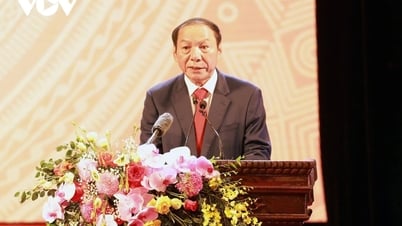

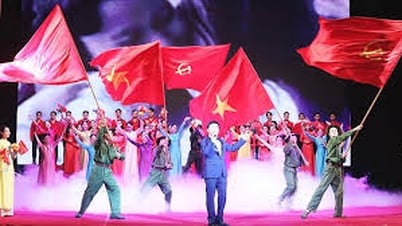

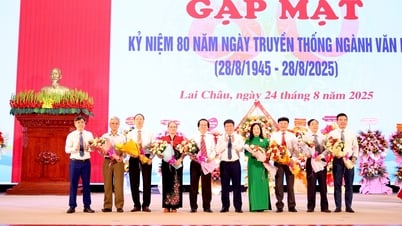

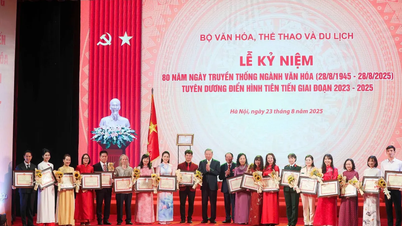

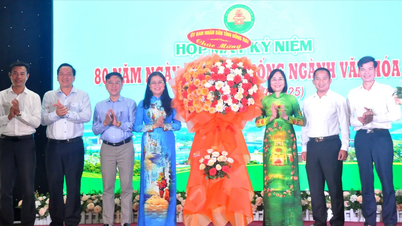





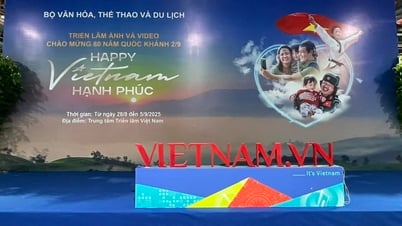
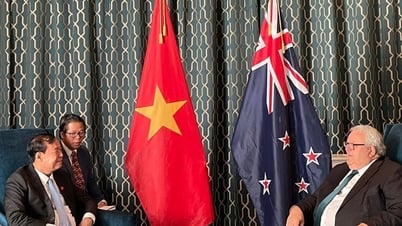


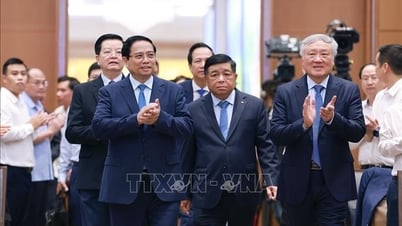





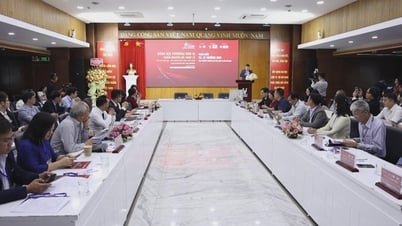
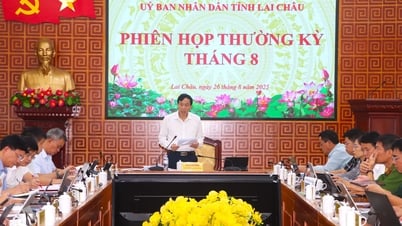
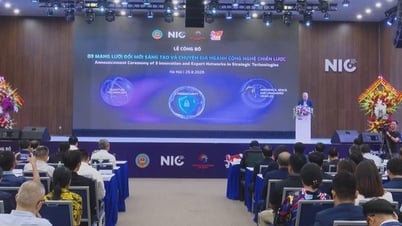
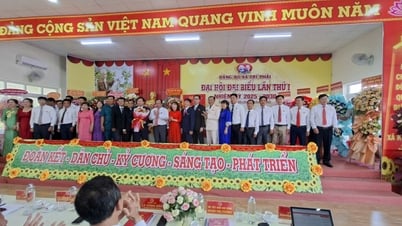

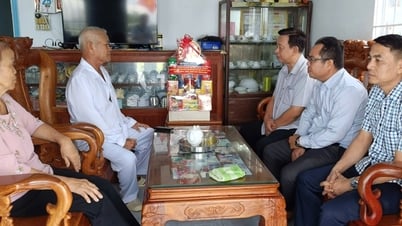

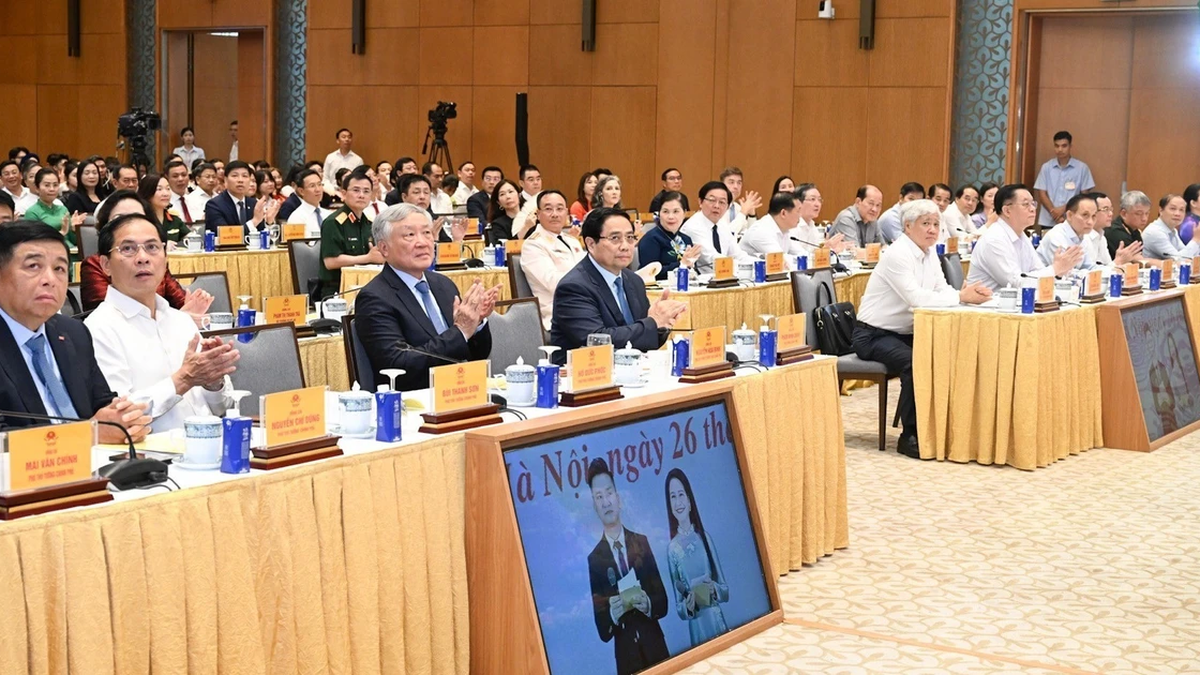

























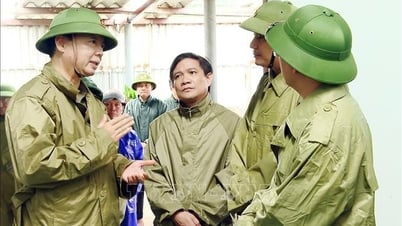
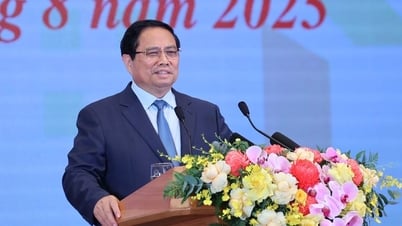
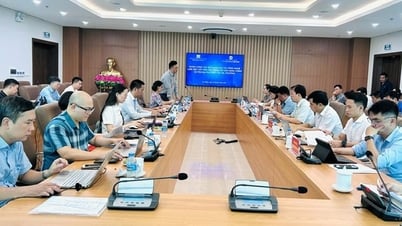

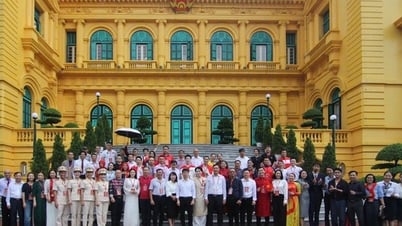

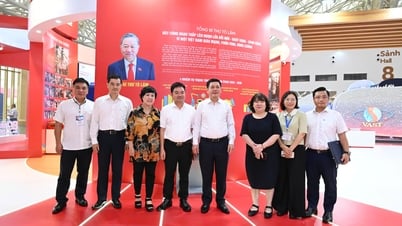

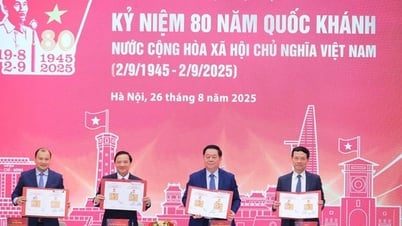
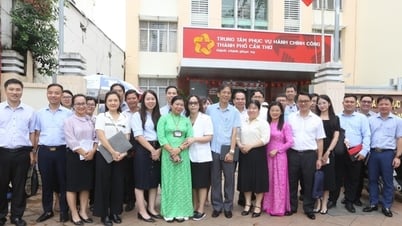
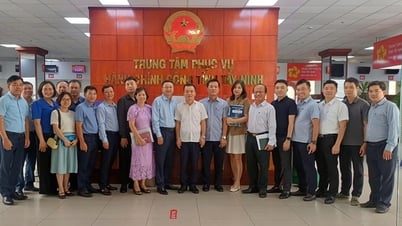


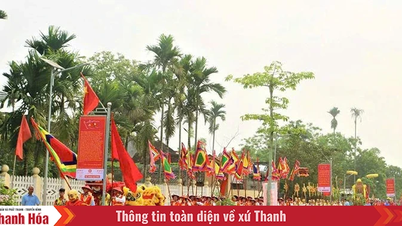
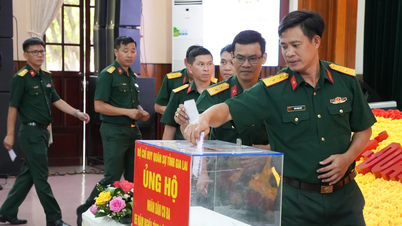

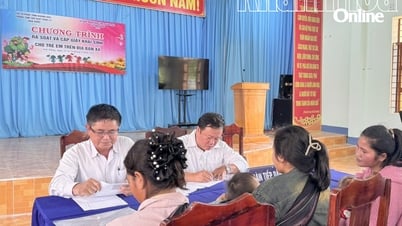



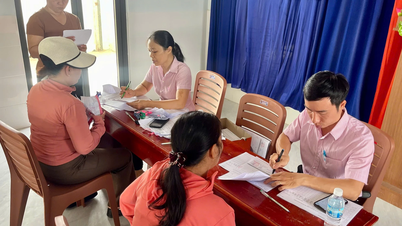





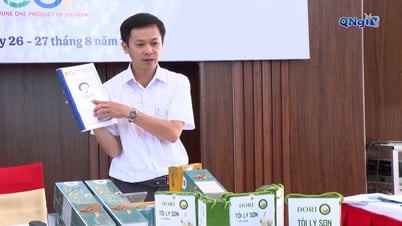







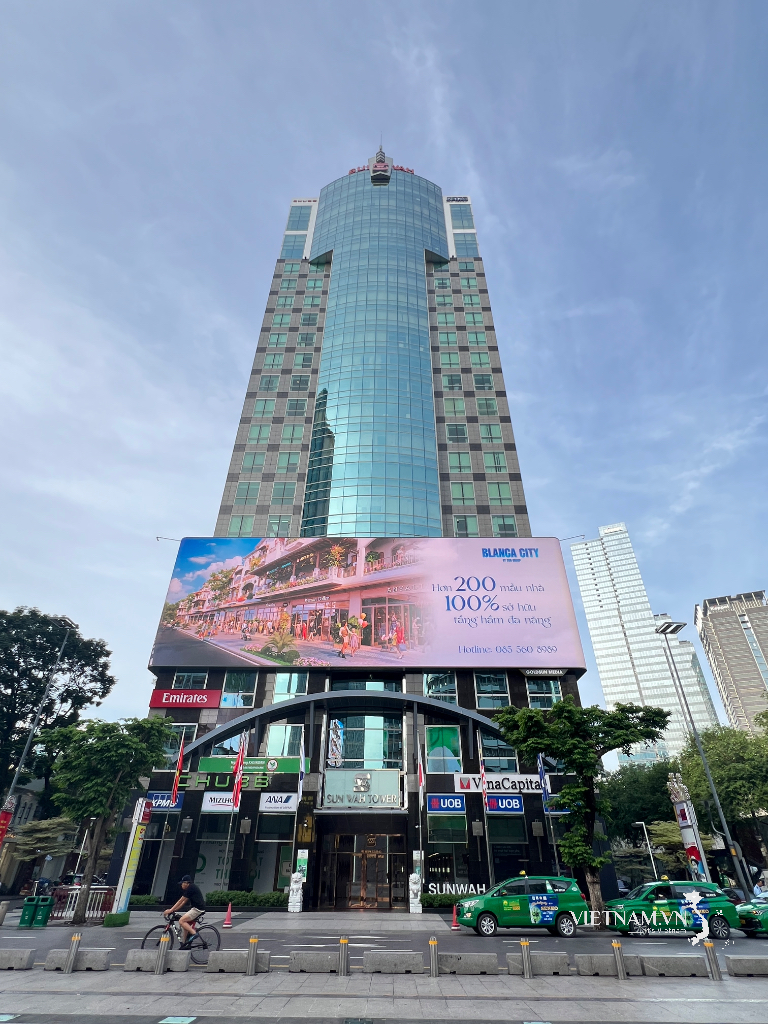
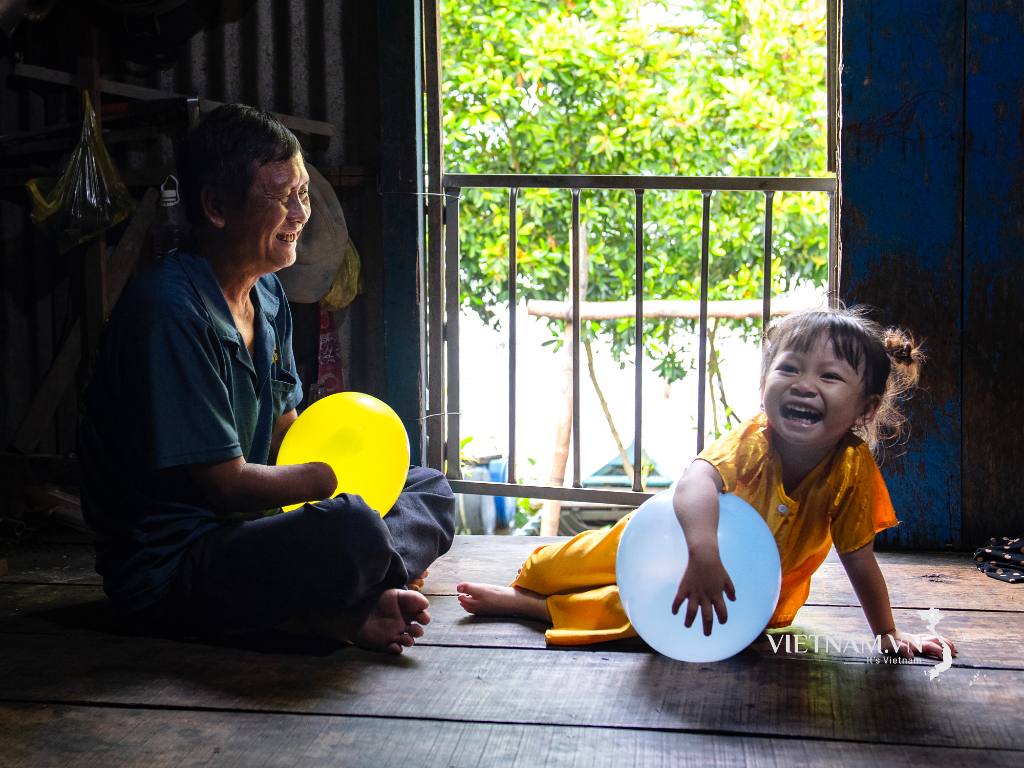
Comment (0)